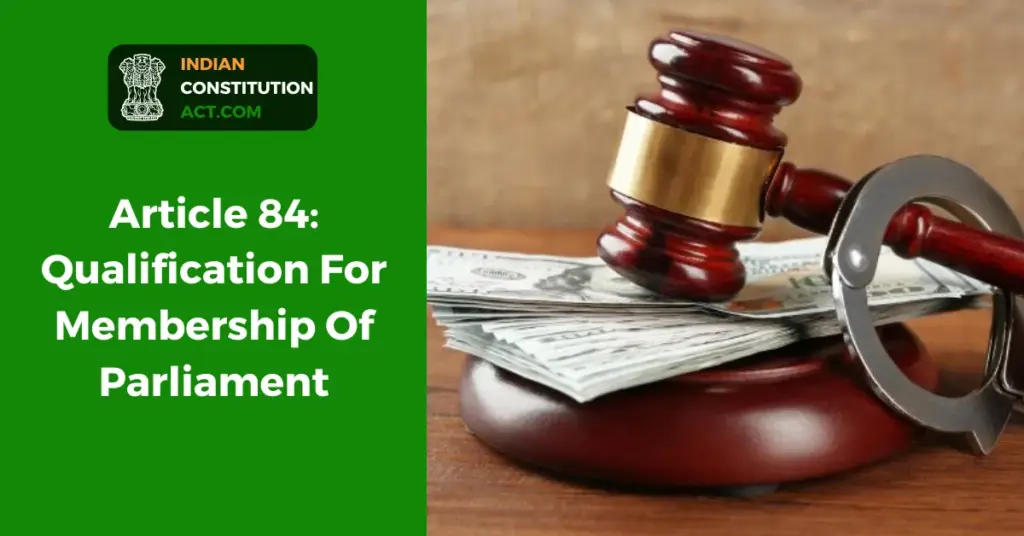Article 84 of the Indian Constitution states what you need to pass and what you need to stay away from to become a member of Parliament. This article clearly states what qualifications are required to become a member of Parliament. This Article is in chapter 2 and part 5th of the Indian Constitution. Article 84 provides essential insights regarding the membership of Parliament. Let us know more about this article through this blog post.
Table of Contents
Article 84 Of The Indian Constitution Explanation
Article 84 states who will be MPs and what qualifications they should have. There are some criteria given in Article 84, we have listed and explained them for your better understanding.
- A person shall not be eligible to fill a seat in Parliament unless he is a citizen of India.
- Take the oath given in Article 3 in front of any officer of the Election Commission.
- The member of the Rajya Sabha must be at least 30 years of age and for Lok Sabha, the minimum age should be 25 years.
If the Parliament wishes, it can add a new rule to it and can also remove any old clause. For example, in the future, if the state and Lok Sabha want, they can make a law that whoever wants to become a member of the parliament should have passed the 10th standard.
Also read: What Is Article 82 Of The Indian Constitution?
Article 84: Qualification For Membership Of Parliament

A person shall not be qualified to be chosen to fill a seat in Parliament unless he:
a. Is a citizen of India, and makes and subscribes before some person authorised in that behalf by the Election Commission an oath or affirmation according to the form set out for the purpose in the Third Schedule;
b. Is, in the case of a seat in the Council of States, not less than thirty years of age and, in the case of a seat in the House of the People, not less than twenty-five years of age; and
c. Possesses such other qualifications as may be prescribed on that behalf by or under any law made by Parliament.
What Are The Powers Of Parliament
There are several big powers in the hands of Lok Sabha and Rajya Sabha such as making law, budget approval, taxation, amending the constitution, debate, approval of treaties, creating states, emergency power, impeachment, removal of high court judge, controlling armed forces, formation of committees, represent the people of India, and Mps speak on behalf of the citizens from the areas.
Article 84 of the constitution defines the qualifications to become a member of the Lok Sabha. We hope that you have understood Article 84 of the Indian Constitution and if any doubt remains, then you can tell us by commenting in the comment box given below. We will try to get you the answer to your questions as soon as possible. Thank you till then!
